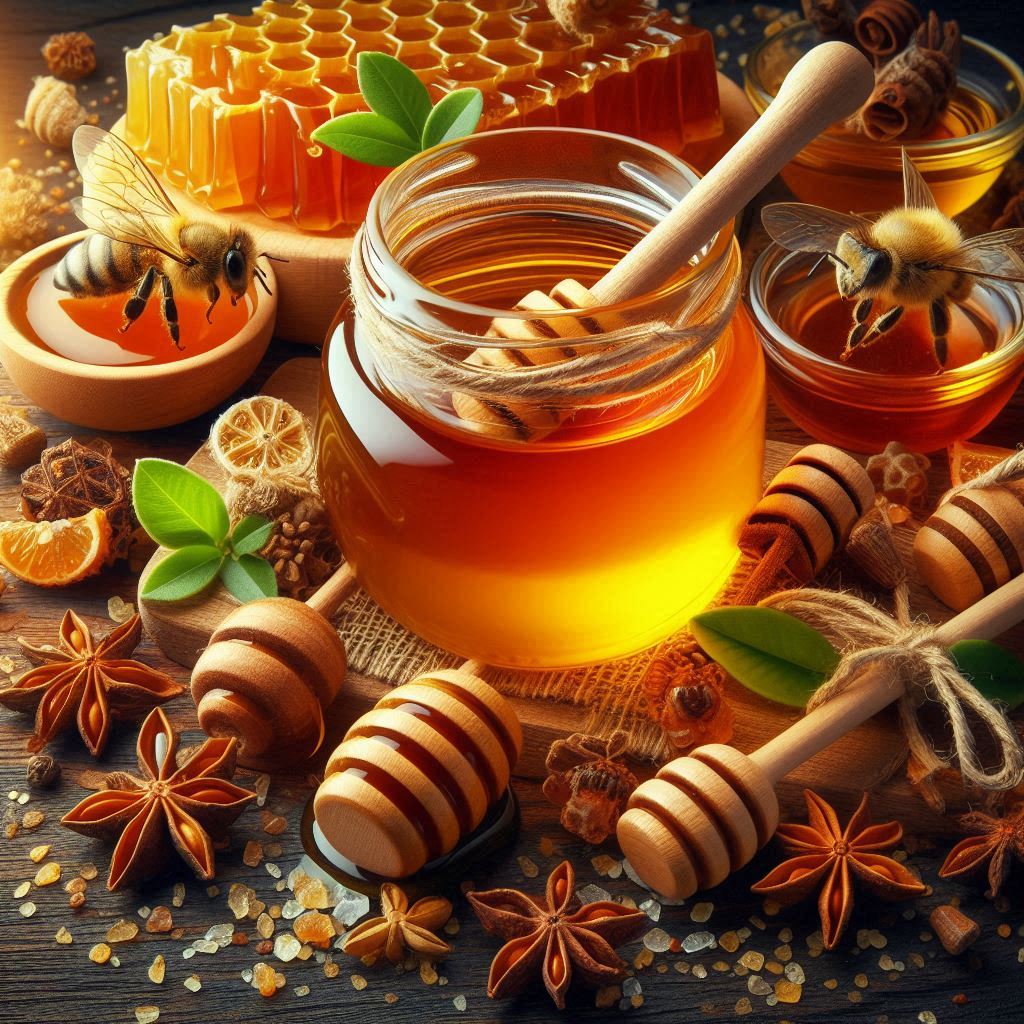
Does honey contain vitamin C
In this exploration, does honey contain vitamin C, I explore the fascinating world of honey and solve the puzzles related to the vitamin C content in it.
Bees make honey, a golden liquid, from flower nectar, and it has long been valued for its many health advantages and inherent sweetness. Although honey is well known for its soothing properties on sore throats and for being a better substitute for refined sweets, its vital elements, such as vitamin C, are sometimes overlooked.
Vitamin C is present in honey, however, the exact quantity varies depending on the kind of flower used, how it's processed, and how long it's stored. Although honey's vitamin C content may not be as high as that of fruits and vegetables, consuming honey regularly has many health advantages. Vitamin C and other important elements may be retained to the greatest extent possible by selecting raw, unprocessed honey. Honey continues to be a sweet and healthy addition to a balanced diet, providing not only its delicious flavor but also a hint of vital vitamins for our overall health as we continue to find its nutritional secrets.
Even while honey isn't a very high source of vitamin C, eating it regularly has several health advantages. The complex network of variables affecting honey's vitamin C concentration and antioxidant qualities emphasizes how important it is to think of honey as more than simply a sweetener. The more we delve into the minute aspects of honey's nutritional makeup, the more evident it is that this golden drink is not just a culinary joy but also a vital component of a balanced, health-conscious way of living.
Honey is made up of a complex combination of different chemical components, minerals, water, and sugars. The precise flowers that bees visit to gather nectar determine the sort of honey that is produced. Honey is mostly made up of sugars (fructose and glucose) and water (20%), with the remaining 20% consisting of minerals, vitamins, enzymes, and pollen.
Vitamin C Found in Honey: Ascorbic acid, another name for vitamin C, is a water-soluble vitamin that is well-known for its antioxidant qualities and crucial function in bolstering the immune system. While strawberries and oranges are often linked to having high vitamin C contents, honey also has this important ingredient, albeit in lesser amounts.
The source of the flowers and the techniques of processing may have an impact on the quantity of vitamin C in honey. When opposed to commercially processed honey, raw and unprocessed honey is typically thought to preserve more of its natural components, including vitamin C.
Floral Source Influence: The kinds of flowers that bees visit have a direct impact on the amount of vitamin C in honey. The vitamin C content of different floral sources varies, which affects the nutritional composition of honey. When honey is created from other floral sources, it is less likely to have the same amount of Vitamin C as honey that comes from citrus or acacia flowers.
Effects of Processing and Storage: Honey's vitamin C concentration may be impacted by how it is processed and stored. Vitamin C may be degraded by heat and light, which lowers the amount of vitamin C in the honey. Because raw honey keeps more of the nutrient's natural strength, it is sometimes regarded as a superior source of Vitamin C than less processed honey.
Advantages of Vitamin C in Honey for Health: Even while it may not be the main source of vitamin C, honey still has this important ingredient, which adds to its many health advantages. Vitamin C is well recognized for strengthening the immune system, assisting the body's fight against infections and promoting recovery. Furthermore, vitamin C is a potent antioxidant that fights inflammation and oxidative damage.
One of the most important ingredients in honey, vitamin C has several functions that promote general health. Free radicals are unstable chemicals that may harm cells in the body. Vitamin C's antioxidant qualities aid in their neutralization. Vitamin C supports cellular health and has been linked to a lower risk of chronic illnesses by reducing oxidative stress.
Furthermore, collagen synthesis—a process necessary to preserve the integrity of connective tissues, skin, and blood vessels—requires vitamin C. Although honey isn't the body's main source of vitamin C, including it in the diet together with other foods high in the nutrient helps the body meet its daily needs and supports good health.
The many components of honey work in concert to improve the bioavailability of vitamin C. The enzymes and other organic substances found in honey may help the body absorb and use vitamin C more easily. The complex way that the elements interact in honey highlights how comprehensive its nutritional profile is.
Honey is prized for its possible antibacterial qualities in addition to its nutritional benefits. Honey's low water content and acidic pH make it difficult for bacteria and other microbes to flourish there. Although these attributes aren't specifically connected to vitamin C, they contribute to honey's general health-promoting properties.
It is important to remember that geographic elements like soil quality and climate may have an impact on the amount of Vitamin C found in honey. These variables can also have an impact on the nutritional content of the plants that bees visit. Research has shown that honey's vitamin C content varies depending on the area, underscoring the dynamic interplay of the environment, floral sources, and honey's nutritional makeup.
Honey's culinary adaptability adds to its allure as a wholesome ingredient in a variety of recipes. Honey is a healthy substitute for processed sugars and adds a hint of vitamin C and other vital elements. It may be used as a natural sweetener in tea, yogurt, salad dressings, and other culinary applications.

